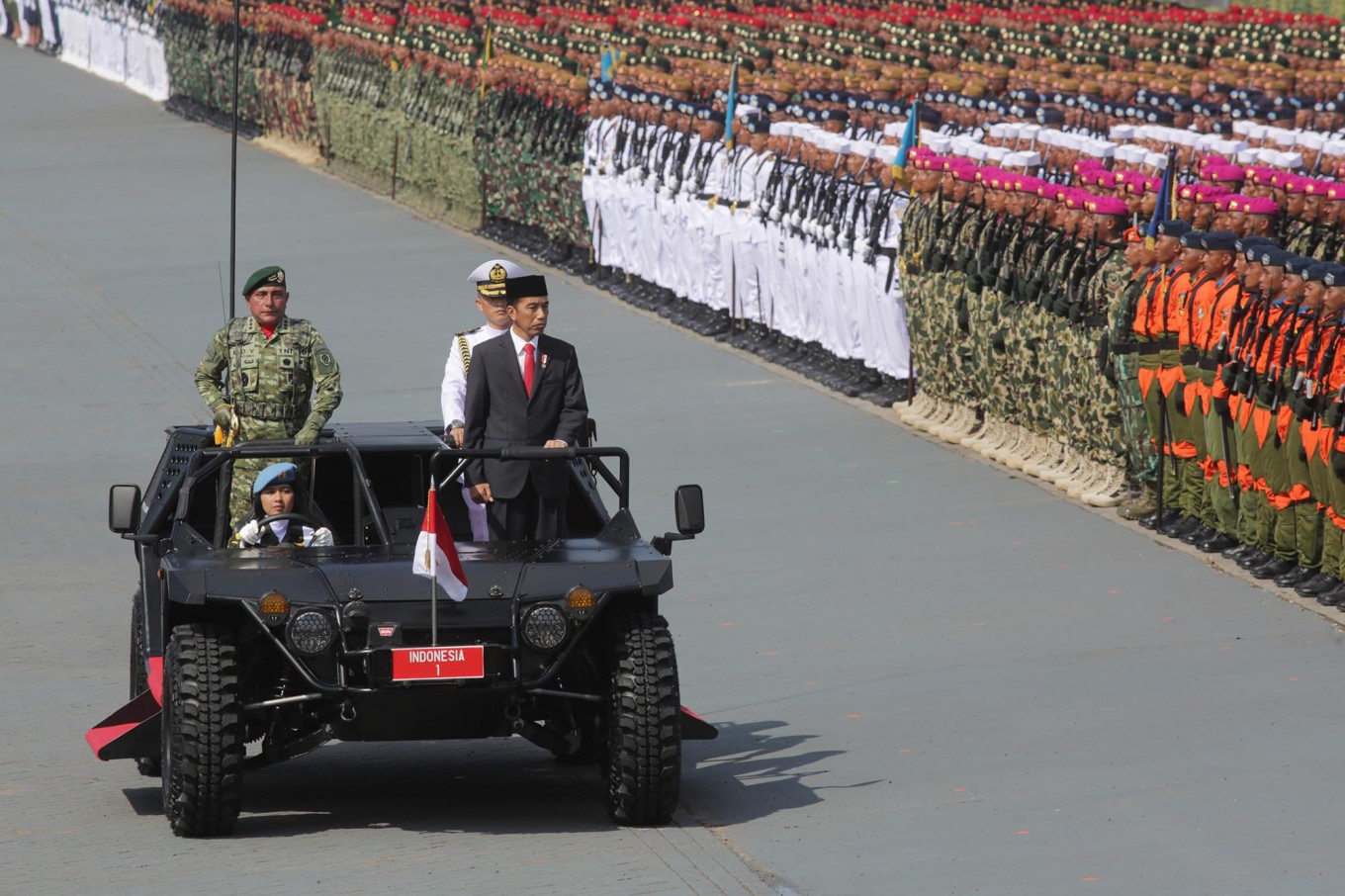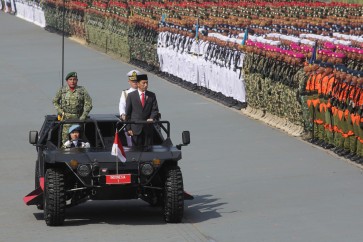Popular Reads
Top Results
Can't find what you're looking for?
View all search resultsPopular Reads
Top Results
Can't find what you're looking for?
View all search resultsNo glory for the political soldier, enemy of democracy
Soeharto was indeed the political soldier with politics at the end of his bayonet. Under his rule, the military’s role was a “stabilizing” power that curbed tension in society.
Change text size
Gift Premium Articles
to Anyone
A
head of the 72nd anniversary of the Indonesian Military (TNI) on Oct. 5, we’re again seeing signs of the reemergence of the “political soldier.” This is apparent in the figure of TNI chief Gen. Gatot Nurmantyo, whose recent comments lie beyond his responsibility as the head of the military. Among other political actions, he ordered subordinates to hold public screenings of the New Order’s propaganda film, Pengkhianatan G30S/PKI (Treachery of G30S/PKI), a film that was no longer mandatory to be broadcast since the fall of Soeharto’s regime.
Previously, Gen. Nurmantyo had ordered troops to make the former strongman their role model. Soeharto was indeed the political soldier with politics at the end of his bayonet. Under his rule, the military’s role was a “stabilizing” power that curbed tension in society.
Becoming a member of the armed forces was considered part of the crème de la crème of the nation. Active military officers held key positions from ministers to heads of local government. The military became notorious as a major pillar in preserving the regime’s power, as well as the primary violator of human rights.
As part of reformasi, security sector reform aimed to revamp the TNI into a corps of professional soldiers while eradicating the influence of political soldiers. The reforms required political changes to place the military under the control of the democratic civilian government. The next step was to directly and indirectly distance the military from political affairs. Thus, early security reforms aimed to minimize military dominance in domestic politics, and at a more advanced stage make the military part of the apparatus of state defense.

















